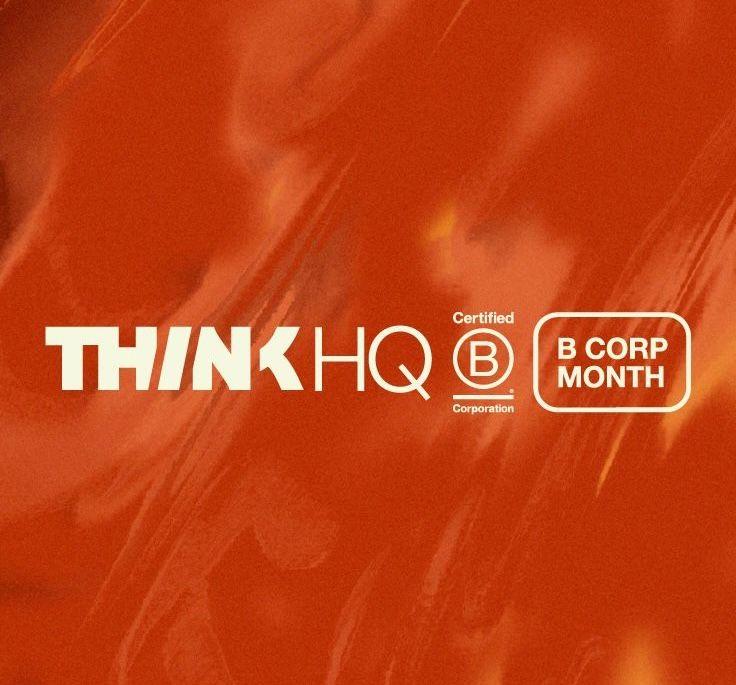Reflecting on Reconciliation:
A Conversation with
Melissa Bickford (Rose)
National Reconciliation Week is an important time for reflection and action towards justice and the rights of Aboriginal and Torres Strait Islander peoples. This year’s theme, Now More Than Ever, underscores both the urgency and ongoing nature of this work.
To delve deeper into the theme and its implications, I spoke with my colleague Melissa Bickford (Rose), Think HQ's First Nations Community Engagement Lead. Melissa, a proud Gunditjmara woman, shared her insights on reconciliation and its significance, particularly for migrant and multicultural communities.
Understanding Reconciliation “Reconciliation isn't the responsibility of First Nations people… what's been overlooked is the crucial step of truth-telling. So, when we talk about reconciliation, it's essential to understand what it's for”.
This immensely powerful statement frames our conversation, and speaks powerfully as to understanding why reconciliation is vital - while shining a light on whose responsibility it truly is.
Following last year’s unsuccessful Voice referendum, many Aboriginal people have felt disillusioned, hurt and angry. Melissa explains, “Many First Nations people have thought this is not working… some had thought that the referendum was about taking over the world, whereas all we wanted was to have a say in the policies that affect us.”
Discussing the ongoing impact of the referendum, Melissa speaks more about how she believes in the need to emphasise that reconciliation is the job of non-Indigenous Australians: “We can't force people to reconcile; other people need to do the work. We are now focused on treaty and self-determination. Since the referendum, many Aboriginal people are feeling much less Martin Luther King and much more Malcolm X”.
The Role of Truth-Telling A significant part of reconciliation is truth-telling, which is essential for understanding the trauma caused by injustices, both historical and ongoing. As we explore the issue more broadly, Melissa highlights the Yoorrook Justice Commission as a positive step forward, explaining how “...it marks the beginning of the nation's first formal Indigenous-led truth-telling process”.
Lessons for Migrant and Multicultural Communities Australia's diverse population, with almost a third of people born overseas as of June 2023, is itself a unique opportunity for learning and collaboration in the journey towards reconciliation. Reflecting on my own experience as a first-generation Nigerian migrant, I recall how interacting with a First Nations student opened my eyes to Indigenous cultures. This experience underscored the importance of approaching reconciliation with an open mind and a willingness to learn.
Melissa suggests that one of the easiest ways for multicultural communities to start this journey is through self-education. “Use resources such as Share Our Pride to further educate oneself,” says Melissa. “The responsibility of educating others does not fall solely on First Nations people. Once you learn, it's hard not to see things through that lens”.
Connecting Through Culture A positive jumping off point for engaging with First Nations culture can begin with personal interests and passions. “If you love art, literature, music, or films, choose the Aboriginal version!”, Melissa suggests. “If you’ve got kids, find out about creation stories and language. Children love stories and learning language words”.
“It’s wonderful to see some First Nations languages being taught in schools”, adds Melissa as we move into the area of language and culture. Language plays a crucial role in preserving culture, and there are 38 different Aboriginal language groups in Victoria alone.
Efforts are being made to revive these languages, such as those by the Victorian Aboriginal Corporation for Aboriginal Languages and the development of language apps.
Moving Beyond Reconciliation Week As our conversation draws to a close, I am reminded once again that while National Reconciliation Week is an important milestone, reconciliation should not be confined to a single week. As Melissa poignantly states, “We’re Aboriginal all the time,” a simple statement that highlights the need for continuous learning and engagement. We chat about how simple acts like watching the NITV nightly news is one way to gain a First Nations perspective on current events, encouraging viewers to consider how these perspectives apply to broader societal structures like education, law, and health.
Melissa also touches on the diverse identities within the Aboriginal community, noting “colonisation and government policies including one to breed the black out have led to a wide range of skin tones”. She adds, “When you pass as white, you are less likely to experience overt racism, but you can also feel like people constantly question your identity”.
Conclusion Reflecting on our conversation, it is clear that reconciliation requires ongoing effort and commitment from all Australians. By learning, understanding, and actively engaging with First Nations cultures and histories, we can work towards a more inclusive and just society.
As Melissa reminds us, “We have a unique sense of humour, and given everything we have gone through, it's often considered a conscious decision - that we choose to use humour to get by.”
As we move forward, let’s take these lessons to heart and continue the work of reconciliation every day.
About the Contributors
Melissa Bickford (Rose) is a proud Gunditjmara woman and the First Nations Community Engagement Lead at Think HQ, ensuring that Aboriginal and Torres Strait Islander voices are heard and their values and views are incorporated.
Damilola Ayeni is a first-generation Nigerian migrant and Senior Account Executive at CultureVerse (Think HQ Group), ensuring multicultural audiences and communities are included and represented in campaigns and communications.




